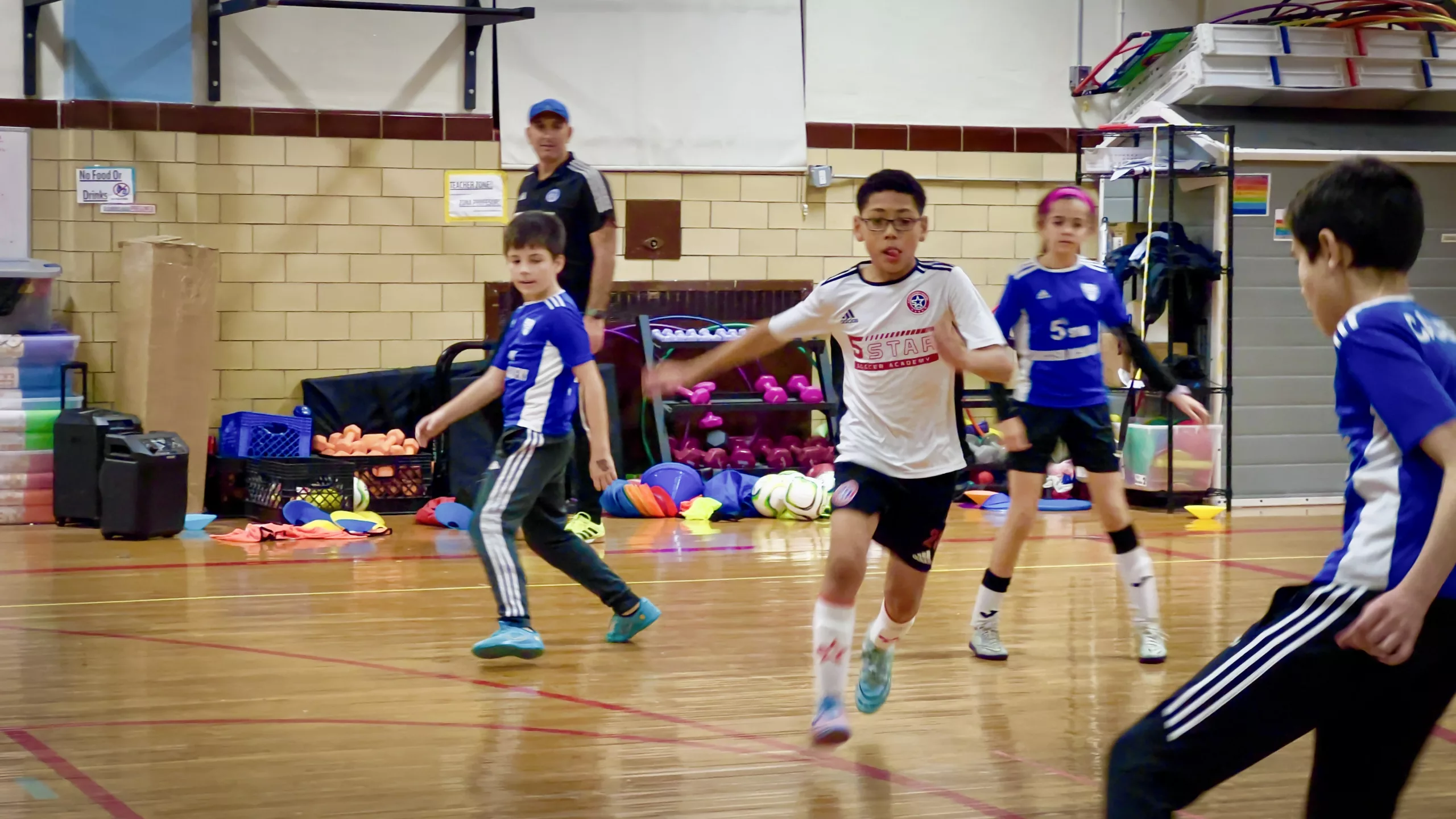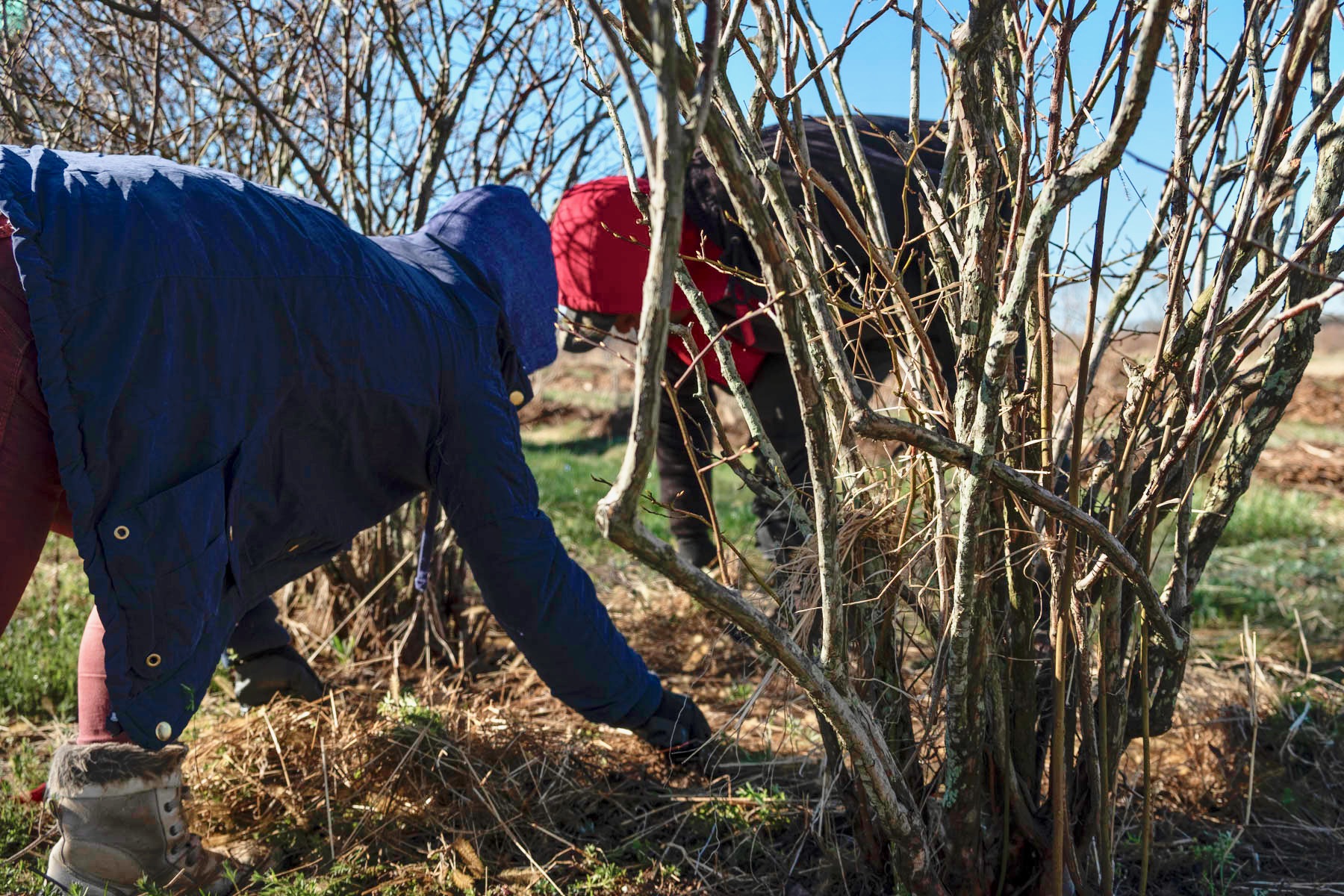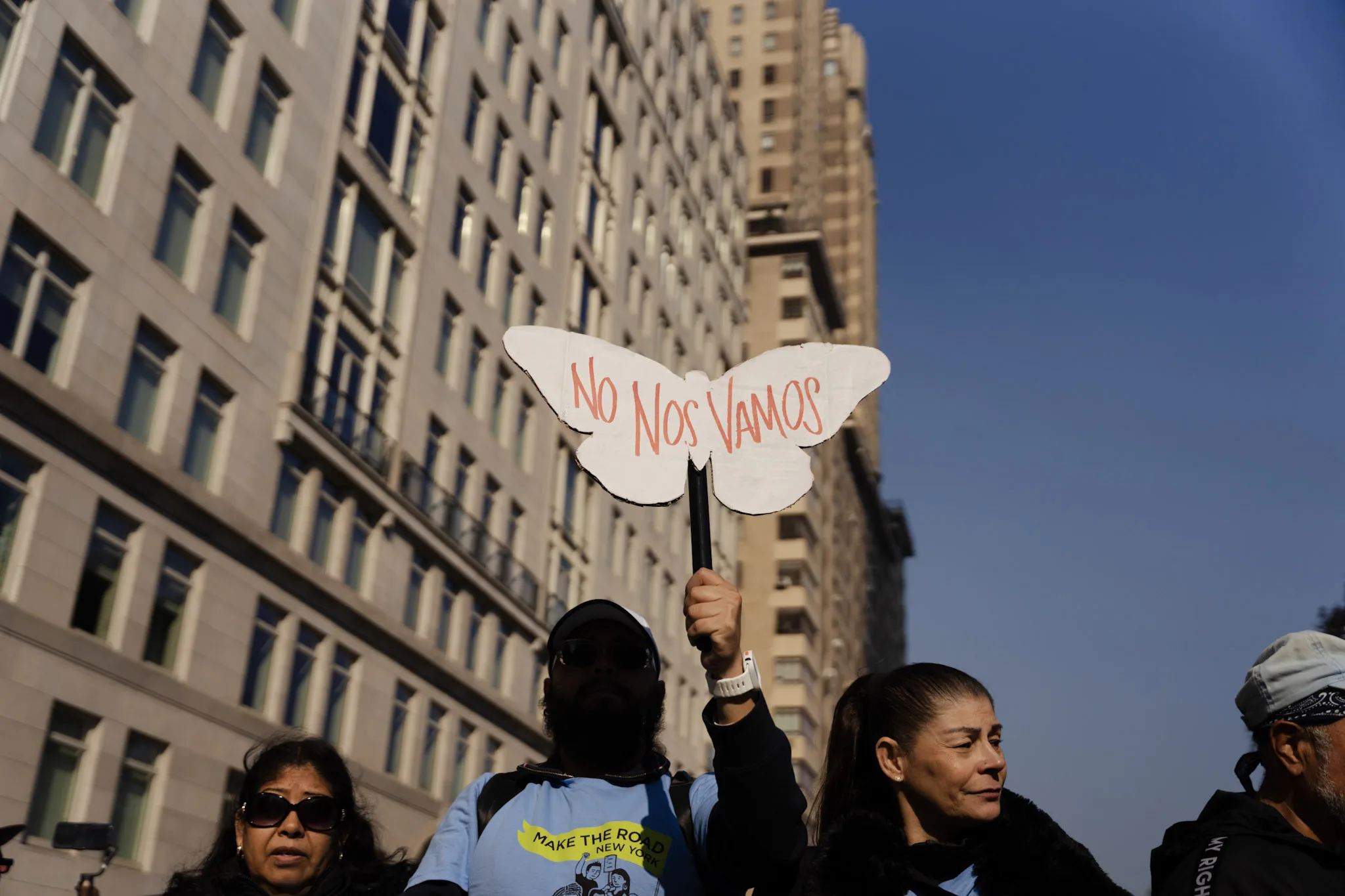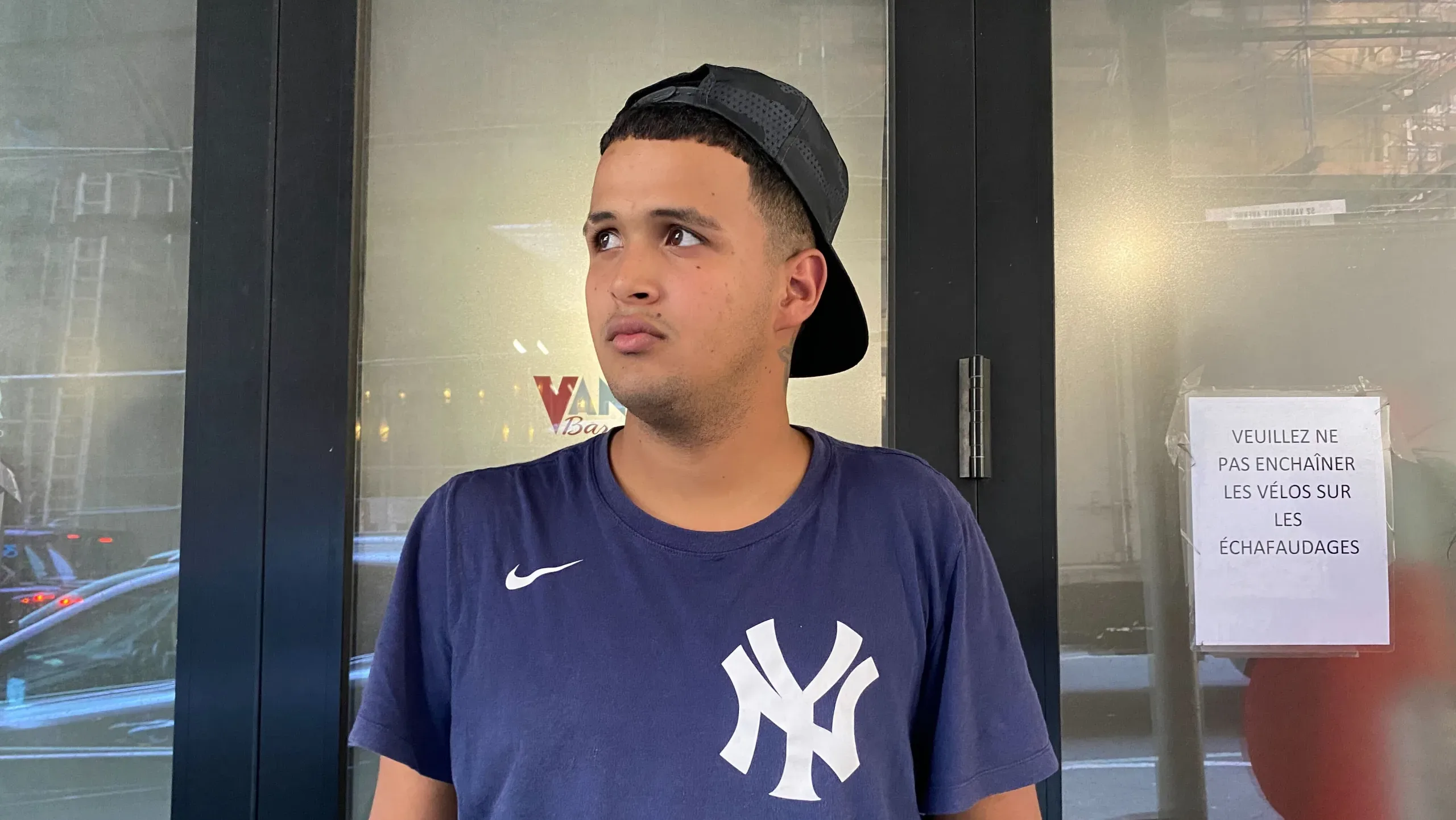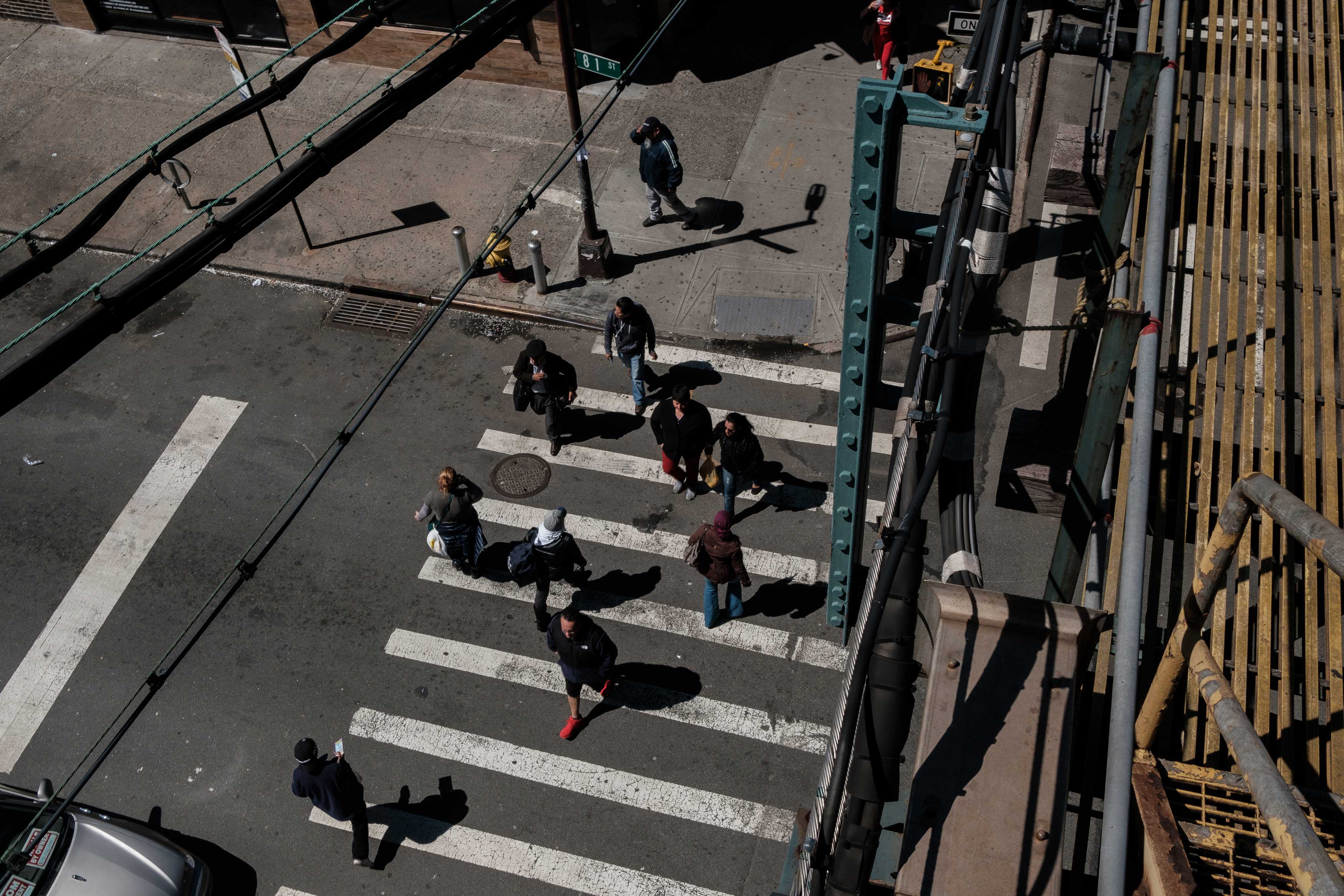At a school gym one Thursday evening, Angel De La Hoz was eyeing his opponents in blue. He sported his white jersey from the left winger position, the same position he has assumed since he was five years old playing soccer in his hometown of Barranquilla, Colombia. Now, at 12, he was practicing in Long Island City’s VOICE Charter School with his new team: 5 Star Soccer Academy.
He positioned himself near the free-kick zone. He seized the ball, and swiftly passed it to his teammate on the right. With a raised hand, he signaled for the ball back, skillfully taking a shot that sent the ball flying toward the goalie. He missed. Frustrated, Angel returned to his left winger position, waiting for the goalie’s throw-in.
Angel had joined the academy in February, three months after arriving in the United States from Colombia, with his parents seeking asylum. “I feel good,” Angel said in Spanish. “I really like playing soccer.”
United by the sport and their immigrant roots, 5 Star Soccer Academy is a team with about 500 members, between ages 3 and 12, who come together in Queens multiple times a week from the various neighborhoods and boroughs. Some families moved to New York from countries thousands of miles away – like Venezuela, Ethiopia and China. Some of the coaches, too, are also immigrants who came to the U.S. from Honduras, Gambia, Albania and elsewhere.
The makeup of 5 Star Soccer Academy reflects New York City’s many immigrant groups, where almost 40 percent of the population is foreign born. And as of this year, more than 30,000 children in temporary housing, most of them likely migrant children, have enrolled in public schools. The academy’s goal is to foster a sense of community in New York, and in some cases build new lives here for recently arrived children.
Also Read: Migrant Children Miss School as Families Are Scattered Across the City
Formed in 2016, 5 Star Academy was founded by Nahun Romero, who came to the U.S. from Honduras in 2005 and grew up in the town of Pinalejo, in the northwest part of the country.
In Honduras, Romero began playing soccer when he was six years old, and started working on a farm when he was eight, harvesting tomatoes, onions and green peppers. Romero had to juggle working in the mornings, and going to school in the afternoons. Eventually, he went semi-pro, playing defense in his country’s second division, training with a team called Marathon, working in the evenings and waking up in the early morning to train.
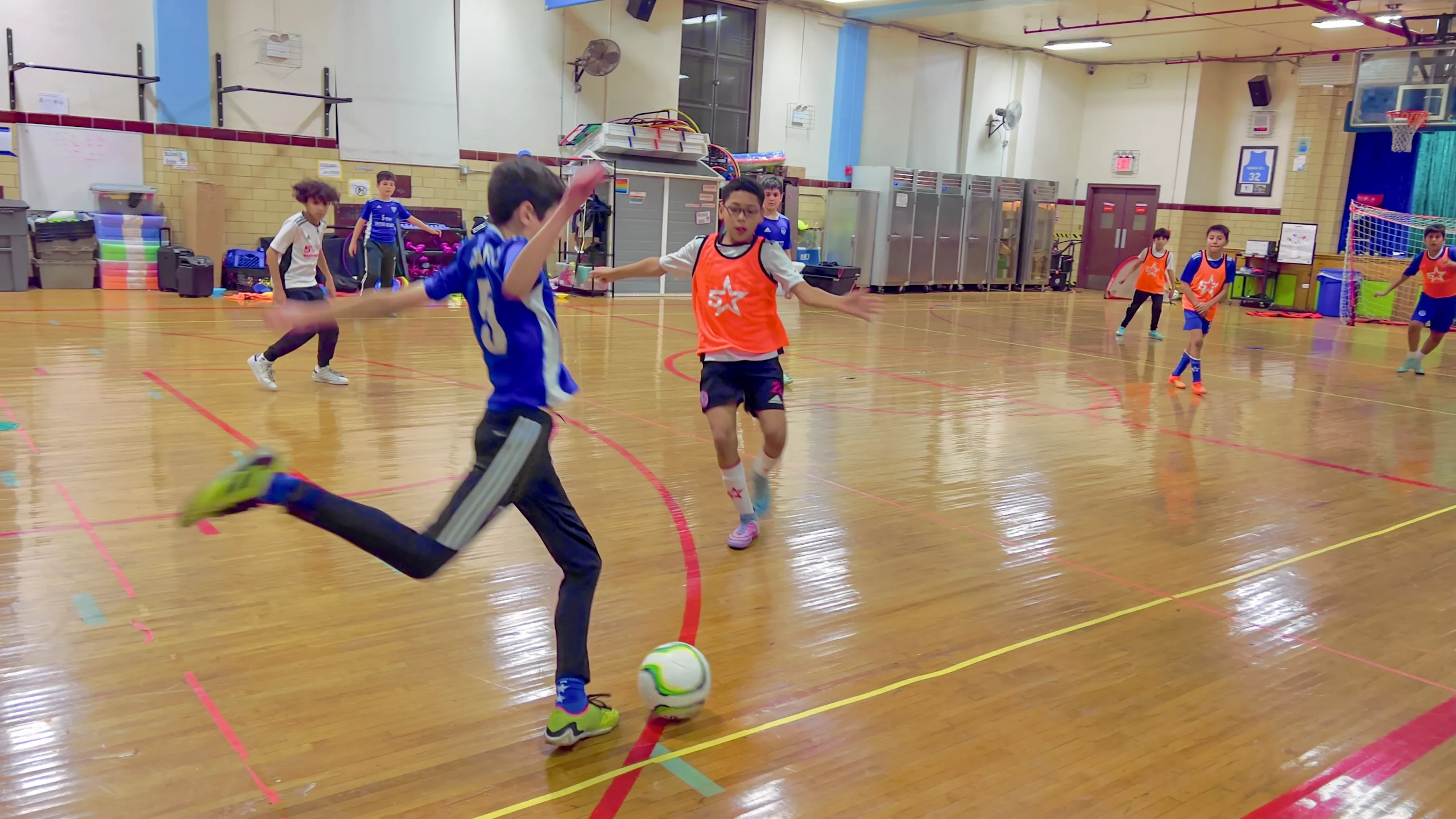
Photo by Rommel H. Ojeda for Documented.
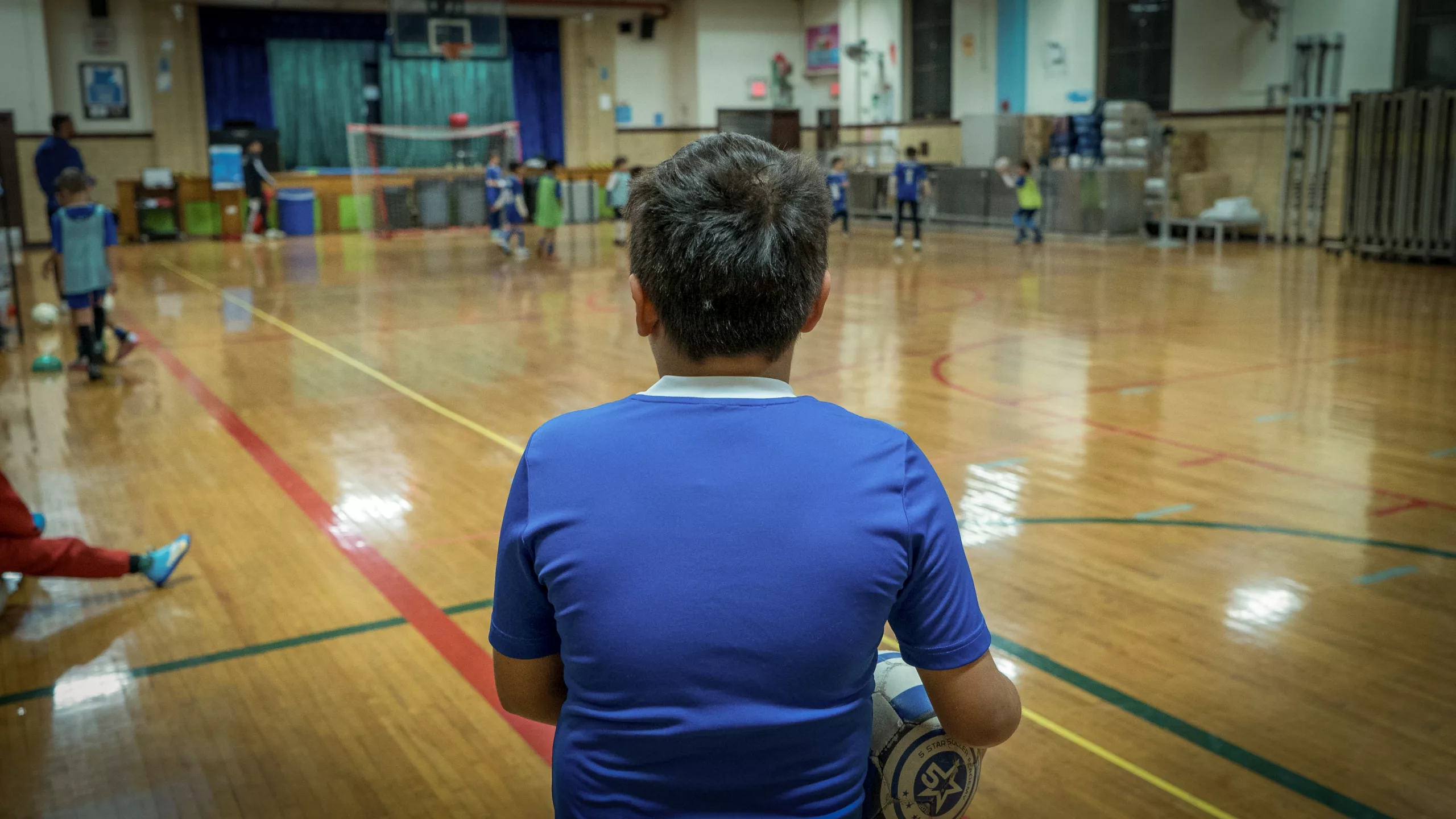
He is one of the scholarship recipients to play soccer at the 5 Star Academy. Photo by Rommel H. Ojeda for Documented.
Through his own experience playing soccer, Romero, 38, says that even if kids lack resources in other parts of their life, soccer can help propel them forward in their futures. “For me, I didn’t have a good education, but soccer gave me everything,” he said. “It taught me how to be a strong person.”
Romero always dreamed of becoming a professional soccer player, and held onto his dream even after arriving in the U.S. But, the goal has since evolved. “Now, my dream is to make a professional soccer player,” he said, alluding to his coaching career and the academy he founded.
The academy has enrolled approximately 500 children for the year who participate in practices and travel matches. In 2016, they started with just five children. According to Romero, the academy has families from more than 45 different countries. Romero hopes to make 5 Star a space that welcomes all families and children who went through immigration journeys like his own, he said.
On a cold Wednesday night in late November, inside the gym at PS 171 Peter G. Van Alst in Astoria, Queens, Coach Abdoulie Jarju was running across the gym, leading a group of preschoolers and elementary school kids through soccer drills. The kids cheered and Jarju high-fived them as they passed to each other, dribbled around cones, and scored a few goals.
Jarju, 35, started playing soccer in his home village in the west of Gambia when he was seven years old, and eventually played semi-professional. “Soccer played a key role in my life, in my neighborhood, because soccer brings people together,” Jarju said. “No matter how bad, sad we are, when we step into the soccer field you forget about all those things.”
As one of 11 siblings, and an older one, Jarju also had a responsibility to help his family, he said. He had to limit his playing and split his time working at a hotel and playing soccer part time. “I needed to take care of my family,” he said.
Transitioning to New York wasn’t easy, he said. After he moved to the city, his father passed away four months later, and he could not return home to be with his family because of legal immigration limitations.
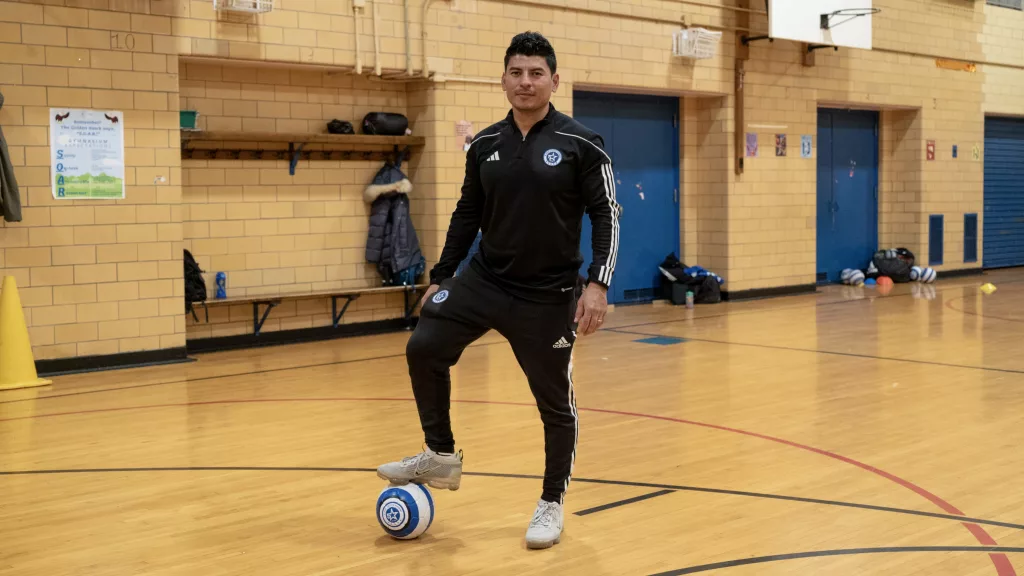
Photo By Rommel H. Ojeda for Documented
In New York, he learned about 5 Star through his soccer teammate, who is also from Gambia. The academy helped Jarju build roots in his new country, and through it, he connected to children from all different backgrounds. “You have kids from Asia, Africa, Europe, America, Central America — everywhere,” he said. “Anytime I go, I forget about what I have been going through because of the kids. Which makes me feel good.”
He now coaches several days a week, and also works as a referee for other soccer games. The jobs are crucial for him to keep supporting himself, and to send money back home to his family in Gambia, he said. “He gave me a chance,” Jarju said, expressing how grateful he is for Romero’s guidance and for giving him a coaching position at the academy. “Because of the soccer academy, I was able to help myself, my family.”
For Romero, it’s important the program be accessible for kids who may not have the means to pay for soccer training. The academy raised money to award three scholarships to recently arrived migrant children, Romero said. The scholarship covers two seasons, summer camp, and the kits that amount to $2,000 per child.
“It’s going to be hard to change the soccer business in the United States,” Romero said, “but at least I can do something different in our academy.”
Romero’s 4-year-old son, also named Nahun, was running inside the pitch with a group of older children at Wednesday’s practice. He may have been the youngest, and the smallest, but he was one of the fastest. As he spoke with his dad after practice, Nahun easily switched between English and Spanish.
The migrant children who attend Five Star are mostly from Colombia and Venezuela, Romero said. Some learned about the academy because he saw them practicing in Queensbridge, near the hotel shelters where migrants were placed by the city. “They used to go all the time to the park to play,” Romero said. “A lot of people came to me and [said] ‘Hey, can I play?’ ”
Luckily for Angel, 5 Star holds some of their practices at the same school he attends, VOICE Charter School. He arrived with his parents, Alicia and Alberto De La Hoz, to New York in December of 2022 from the seaport city of Barranquilla, Colombia. When they got to New York, Angel asked his parents to help him find a soccer school to continue his pursuit of the sport as he had done in Barranquilla since he was five. “It’s his passion. He dreams of becoming professional,” said his father, Alberto, 50, who also played soccer when he was young.
Angel’s family survived navigating the path through the Darién Gap, with Angel helping his parents carry their bags through thick mud and up mountains. Angel’s energy uplifted them on the journey to New York — and now it assists him on the soccer field, his parents said.
The family lives in a shelter in Long Island City, and heard of 5 Star through a national guard member at the hotel. Romero gave Angel a scholarship, and the boy has been playing soccer at the academy since February, playing as a left winger and also defense.
Alicia, Angel’s mother, said that she did not have the kind of resources that her son is now being offered when she grew up. “To receive the help from Nahun is a hope,” she said. “Especially for [Angel] because he is so passionate and in love with soccer.”
陈学理胜选凸显华人社区“右转”
On a typical practice day, Angel often asks his mother to come watch him play. So after Alicia’s day is done, working as a babysitter, she takes the train from whatever part of the city she had to work from that day, to come watch him play in Astoria or Long Island City.
During the most recent practice she was not able to make it, but Angel’s father, Alberto, accompanied him. He watched as Angel glided across the gym to defend his side of the pitch, passing the ball to his teammates. Alberto looked on proudly as the play started by Angel ended in a goal.
